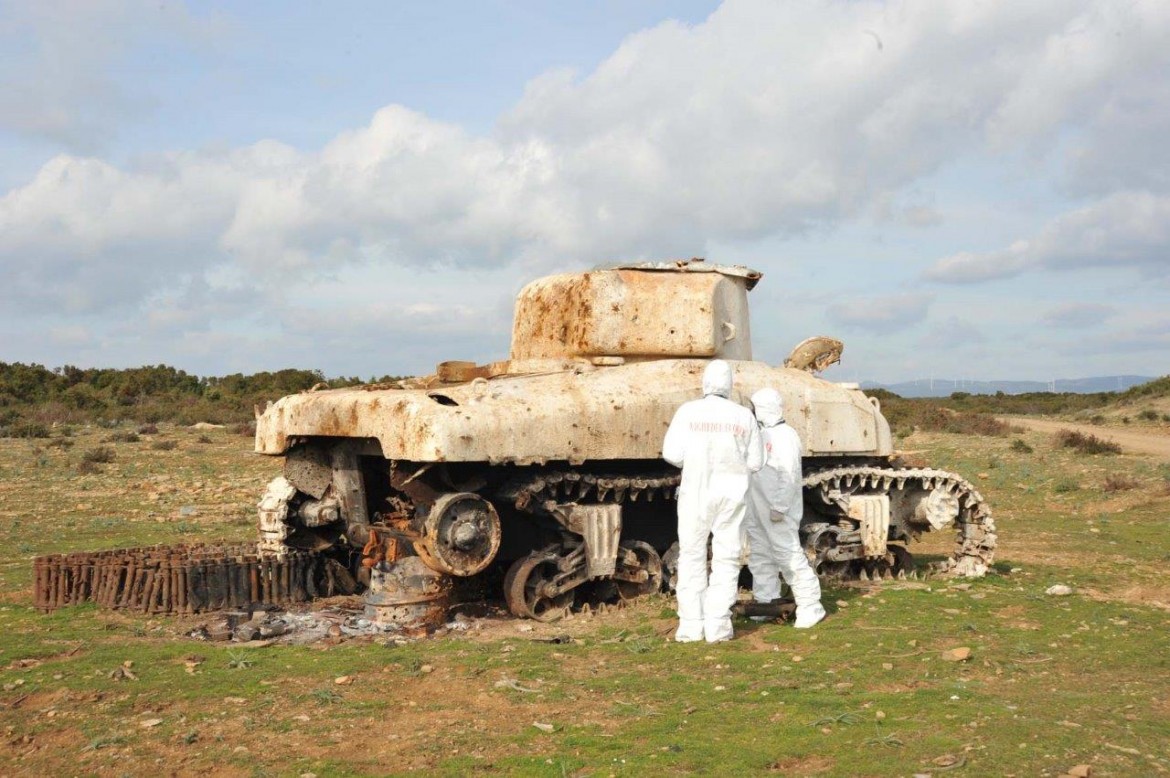Reportage
Italy moves to protect soldiers from uranium exposure
Italian Parliament has proposed a bill that would improve safety conditions for communities near military installations.

Shooting ranges, barracks, military establishments: all unsafe places, where highly toxic substances are used or stored. These are dangerous places for soldiers but also, in the case of shooting ranges, for the people living in the surrounding areas. According to the Military Observatory (the independent Italian body that monitors the safety and health protection of the military and civilians affected by the activities of the armed forces), 7,600 soldiers have fallen ill due to exposure to depleted uranium.
In the face of this disturbing figure, the lawyer Angelo Tartaglia of the Observatory, which pursues legal recourse on behalf of victims of poisons, has won only 76 favorable rulings. Seventy-six stories that can be read in a precious book, recently published by David & Matthaus, “Military uranium.” It was written by journalist Mary Tagliazucchi along with Domenico Leggiero, a former Air Force pilot, coordinator of the Military Observatory and consultant of the parliamentary inquiry committee on depleted uranium.
But these stories are the tip of an underground world where carelessness, levity, non-compliance with military rules and laws cause suffering and death.
Also the Parliamentary Committee on Depleted Uranium, chaired by Giampiero Scanu of the Democratic Party, tries to shed light on this dark world, with the Military Observatory. He is the congressperson of Sardinia, the region that hosts the largest number of easements.
On Wednesday, the Commission came together with yet another cry of alarm and some operational proposals.
During a press conference held in the morning in the House, Scanu announced the Commission’s interim report, which culminated in a bill entitled “Occupational safety and insurance protection against labor accidents and diseases of armed Forces staff.” The bill will soon be presented to the House.
“The universe of military security is not governed by appropriate rules,” Scanu said. ”We need a new law. Without it, the basic strategic choices that transform the military into weak workers and humiliate the sick or dead military, will remain unchanged. There is a disproportion between the self-denial and the institutional reluctance to timely acknowledgement of adequate compensation.”
From the Ministry of Environment, the Commission calls “for a survey that registers with certainty all the data related to the shots fired in the shooting ranges as well as stringent controls on the dispersion of substances in military and surrounding areas.”
In fact, it is reported that in the firing ranges, there is an “absence or the mere episodic nature of the monitoring activities of the environmental impact of military exercises.” The report indicates: “The pollutants enter the food chain and therefore, the acceptance of higher thresholds for the standard generates a significant risk to anyone using the derived products.”
A chain of poisons that goes from the war games to the supermarket counters.
“The risks of exposure to chemical and carcinogens associated with substances used in the different activities” have emerged in certain documents which the Commission and released Wednesday.
The most critical ones are reported in the ranges areas, and “other additional risks, equally important, undermine the barracks, deposits and military establishments: not only structural risks, but also maintenance deficiencies and presence of hazardous materials such as asbestos” which has not been fully eliminated yet from ships, aircraft and helicopters. The report goes on: “In several shooting ranges, the failure or delayed remediation of ammunition residues produced serious environmental risks.”
Two of the most dangerous areas are in Sardinia: the Capo Teulada shooting range, where there are an estimated two thousand tons of pollutants, and the interforce Salto Quirra shooting range, the largest in Europe.
And then, there is the Monte Romano shooting range in Viterbo and the Cellina Meduna in Pordenone, where only recently cleanup activities started.
The Commission denounces that “these are very hazardous places, where military personnel is exposed to physical risks, biological hazards, risks to exposure to explosive atmospheres, as well as to work-related stress conditions, all related to all this.”
The report also denounces “the unacceptable delay” of environmental monitoring in the operating areas managed by the military. The document says: “For decades, the armed forces have exposed military and civilian personnel to very high concentrations of asbestos and radon gas, a radioactive substance known for its carcinogenicity.”
Originally published at https://ilmanifesto.it/uranio-soldati-senza-protezione/ on 2017-07-20
